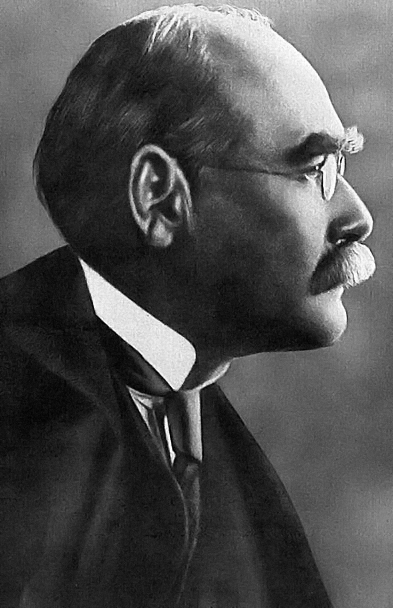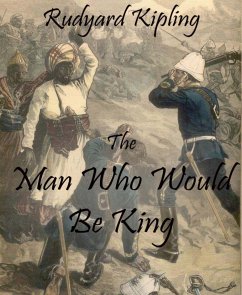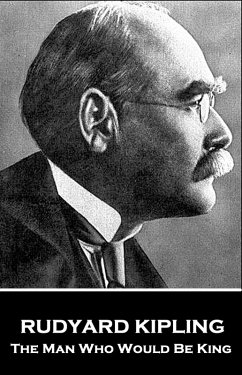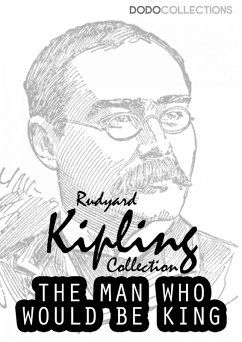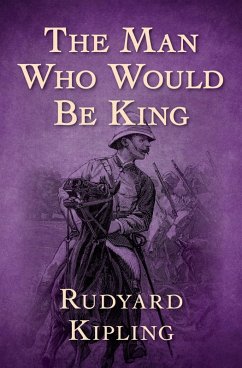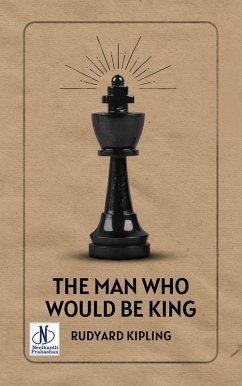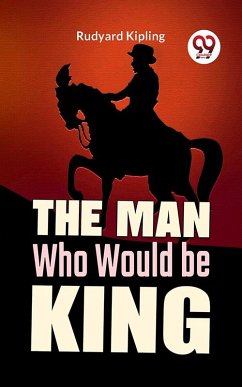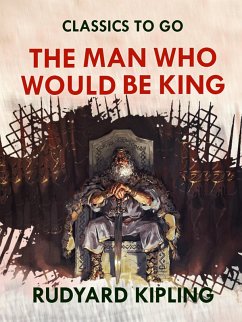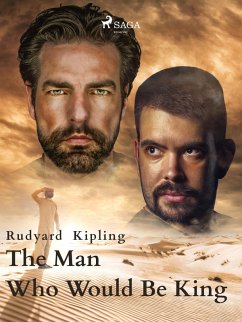
The Man Who Would Be King (eBook, ePUB)

PAYBACK Punkte
0 °P sammeln!
Rudyard Kipling's "The Man Who Would Be King" is a masterful novella that intricately weaves themes of imperialism, adventure, and the clash of civilizations. Set in the remote mountains of Afghanistan, the story follows two British adventurers, Daniel Dravot and Peachey Carnehan, who ascend to kingship in a small tribal kingdom. Kipling's narrative style is characterized by vivid imagery, sharp dialogue, and a keen psychological insight into his characters, reflecting the complexities of colonialism and the human condition. With its rich prose and allegorical depth, the novella serves as a po...
Rudyard Kipling's "The Man Who Would Be King" is a masterful novella that intricately weaves themes of imperialism, adventure, and the clash of civilizations. Set in the remote mountains of Afghanistan, the story follows two British adventurers, Daniel Dravot and Peachey Carnehan, who ascend to kingship in a small tribal kingdom. Kipling's narrative style is characterized by vivid imagery, sharp dialogue, and a keen psychological insight into his characters, reflecting the complexities of colonialism and the human condition. With its rich prose and allegorical depth, the novella serves as a poignant commentary on the intoxicating nature of power and the inevitable consequences that follow hubris. Rudyard Kipling, an acclaimed British author and poet born in 1865 in India, was profoundly influenced by his experiences in British-ruled territories. His literary oeuvre often grapples with the themes of empire, masculinity, and moral ambiguity, echoing the contradictions of the colonial age. Kipling's personal history and exposure to diverse cultures inform the narrative dynamics in this work, allowing him to authentically portray the complexities faced by his characters in their pursuit of power. For readers seeking an enthralling tale that underpins the paradoxes of colonial adventure and the folly of ambition, "The Man Who Would Be King" is an essential read. Kipling's masterful storytelling not only entertains but also invites profound reflection on the nature of authority, identity, and cultural conflict, making it a timeless exploration of the human spirit.
Dieser Download kann aus rechtlichen Gründen nur mit Rechnungsadresse in A, B, BG, CY, CZ, D, DK, EW, E, FIN, F, GR, H, IRL, I, LT, L, LR, M, NL, PL, P, R, S, SLO, SK ausgeliefert werden.




